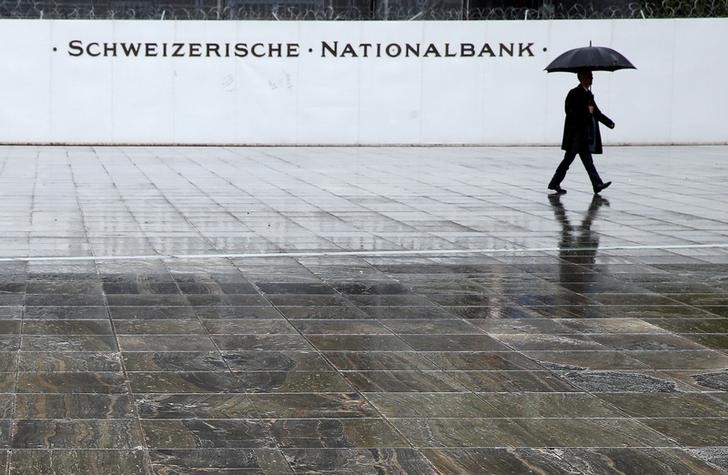TPI Composites files for Chapter 11 bankruptcy, plans delisting from Nasdaq
(Bloomberg) --
The Swiss National Bank is stepping up currency interventions to stem the franc's advance, choosing that measure over an interest-rate cut to combat the economic fallout from the coronavirus outbreak.
It said the virus poses “exceptionally large challenges” and that the currency is “even more highly valued.” That change to its wording on the franc is a warning to markets that it will more aggressively push back against unwarranted appreciation.
It kept its deposit rate at -0.75% and said its exceptionally loose policy is now even more necessary. Although the Swiss financial system has “sufficient liquidity,” the SNB nevertheless reduced the negative interest rate burden for banks.
As of April 1, the exemption threshold factor will be increased to 30 from 25.
The franc weakened slightly after the SNB’s announcement, but then reversed and stood at 1.05502 per euro by 10:26 a.m. in Zurich. It’s strengthened almost 3% this year.
Investors had speculated that SNB policy makers would avoid cutting interest rates, given that they’re already at a record low. The European Central Bank also refrained from lowering rates last week, though it surprised markets with a 750 billion euro bond buying program late on Wednesday. SNB President Thomas Jordan told reporters on a conference call that fiscal policy was central to combat the crisis.The SNB isn’t only battling a weaker economic backdrop, but also a currency that’s strengthened to a five-year high.
That’s creating an additional deflationary risk amid a hit to the economy from shutdowns to try to control the spread of the virus.
President Thomas Jordan and fellow policy makers have been trying to stem the currency’s moves with interventions. The central bank spent more than 13 billion francs on that last year, and data suggest it’s been active again recently.
With business and air travel disrupted, companies shuttered and entire countries in lockdown, the global economy could be heading for a recession. The SNB sees the Swiss economy shrinking this year, having previously forecast growth of as much as 2%.
Central banks around the world have unleashed stimulus in response to the virus outbreak, and governments are pledging to spend billions to help their economies through the upheaval.
The SNB, infamous for roiling global markets in 2015 with a surprise policy switch, is one of the few central banks not to make an emergency announcement this year. It is however, taking part in operations to make sure dollar funding is easily available to banks, a program aimed at easing funding stress from the pandemic.
(Updates with Jordan comment in sixth paragraph.)
©2020 Bloomberg L.P.
